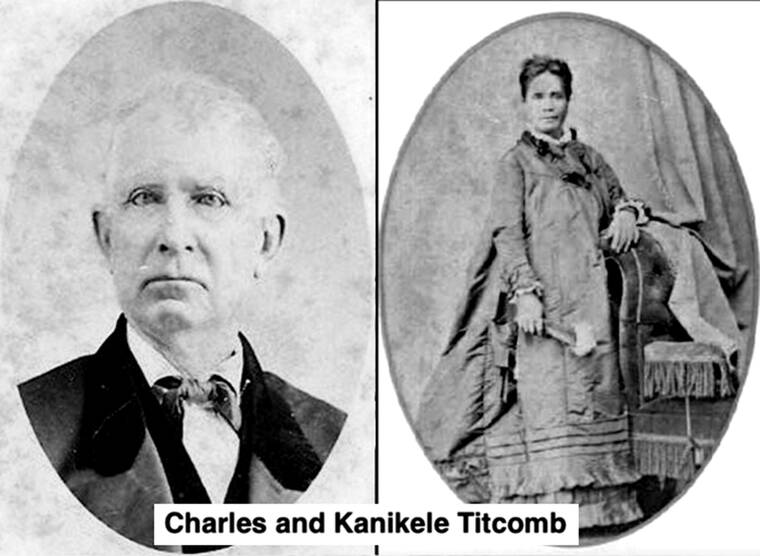In 1830, former Yankee watchmaker Charles Titcomb (1805-83) was aboard the whaler, “Lyra,” when it was shipwrecked off Maui.
He then settled on Kaua‘i, and in 1836, he and Sherman Peck leased around 300 acres from Ladd &Co. to commence cultivating silk at Koloa.
There they planted thousands of mulberry trees, the leaves of which are the food of silk worms, which they’d imported from China and America.
By 1840, the two entrepreneurs expected their enterprise to be profitable, but drought and strong winds killed the mulberry trees, causing financial loss.
Peck left for Lahaina in 1841, but Titcomb stayed on at Koloa for a few months, until disease, aggravated by wet weather, killed off his entire crop of silkworms.
Thus, Titcomb’s and Peck’s silk enterprise at Koloa ended in failure.
But, Titcomb, whose hallmark was persistence, then tried his hand at silk cultivation in Hanalei on land he leased from Kamehameha III.
However, Titcomb’s Hanalei silk enterprise also failed, and allegations the failure was due to the missionaries at Waioli forbidding his Hawaiian workers to feed the silk worms on Sundays, thus causing them to die, remain a point of dispute.
Thereafter, after losing several thousand dollars in his silk enterprise, Titcomb borrowed money and commenced planting coffee at Hanalei.
Once again, success eluded Titcomb, for in 1847, torrential rains damaged the coffee trees, which was followed by labor shortages due to an epidemic and the California gold rush.
Next came drought and coffee blight.
So, Titcomb tried raising sugarcane at Hanalei, but the cane didn’t grow well in Hanalei’s wet climate.
Finally, Titcomb sold his 750-acre Hanalei sugar plantation in 1863 to Robert C. Wyllie and moved to Kilauea, where he’d purchased a land grant from Kamehameha IV and raised cattle.
Success finally came to Titcomb in 1877, when he sold his Kilauea ranch to Englishmen Capt. John Ross and Edward Adams, who then founded Kilauea Sugar Plantation, with Titcomb remaining at Kilauea to build the plantation’s first sugar mill.
Charles Titcomb and his wife, Kanikele Kamalenui (1827-81), had three sons and five daughters.





